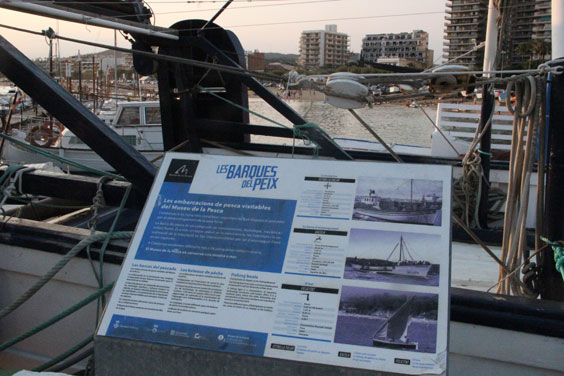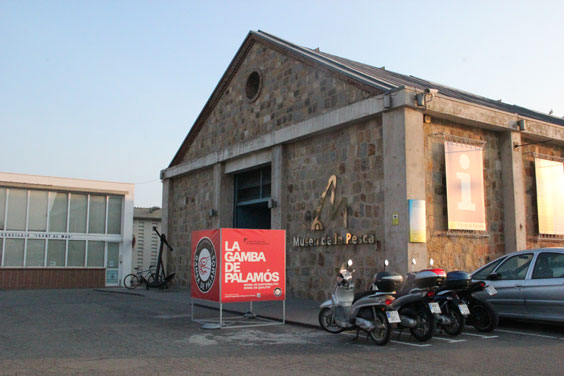The city and the sea. The patrimonalization of port cities (CIMAR)
The City and the Sea. The Patrimonialization of Port Cities HAR2013-48498-P
Program
State Program for the Promotion of Scientific and Technical Research of Excellence.Ministry of Economy and Competitiveness
Period
2014-2017
Participants: Dr. Joaquim Nadal (IP), Dr. Joan Lluís Alegret, Dr. Eliseu Carbonell, Dr. Gemma Domènech, Dr. Nadia Fava, Dr. Modesto García Jiménez, Dr. Marisa García Vergara, Dr. Alejandro Nicolás Miquel Novajra, Dr. Práxedes Muñoz Sánchez, Dr. Juan Antonio Rubio Ardanaz, Dr. Saida Palou Rubio, Dr. Isusko Vivas Ciarrusta, Dra. Sabrina Doyon, Dr. Denis Hellebrandt da Silva, Dr. Enric Garcia Domingo, Dr. Alfons Garrido Escobar, Dr.Miquel Martí Llambrich, Dr. Glòria Ñaco del Hoyo, Dr. Mercè Toldrà i Dalmau (Port Museum of Tarragona), Dr. José Manuel Matés Luque (Independent Researcher), Dr. Marc Morell Tipper (University of the Balearic Islands), Dr. Ángeles Corbacho Gandullo (Universidad Pablo de Olavide de Sevilla), Antoni Rojas Rabaneda (ICRPC)
Participating entities: Catalan Institute for Research in Cultural Heritage (ICRPC), University of Girona, University of the Balearic Islands, Universidad Pablo de Olavide de Sevilla, University of Extremadura, Universidad del Pais vasco Euskal Herriko Unibertsitatea, Universidad Católica de Murcia, Université de Laval (Canada), Museu Marítim de Barcelona, ??Museu de la Pesca de Palamós, Museu del Port de Tarragona
Description
The contemporary city has experienced a profound physical, material, economic and social mutation. The expression of these mutations is a geography and sociology different from the traditional ones and a landscape in which elements of the past, some in disuse, obsolete and at risk of disappearance, remain as silent witnesses of a different past but essential to understanding the present reality.
These questions place the issue of cultural heritage and the uses of heritage at the center of urban debates.
Special plans for historic centers, restoration and rehabilitation projects, urban changes with proposals for new uses, and the reuse of large historical containers for new functions mark milestones in the desire to preserve identity and historical memory as something inherent in the very essence, in the soul, of the city.
Naturally, the wrong choices regarding heritage, whether through fossilization (the museum city) or through the denaturalization of its heritage condition, result in a speculative frivolity that feeds theatricalized cardboard city proposals that do not contribute to the dynamization that is sought but rather feed an empty and innocuous discourse.
This project attempts to project its research based on these parameters on the relationship between the city and the sea, port facilities (river or maritime), the urban environment and the territorial, environmental, landscape and social concretions of this relationship.
We propose to address these issues based on the case study of large port cities with complex urban dynamics such as Barcelona and Tarragona (Catalonia), Bilbao and San Sebastian (Basque Country), Cartagena (Murcia) and Palma de Mallorca (Balearic Islands), as well as medium-sized cities such as Tarifa in Andalusia, Bayonne in the French Basque Country, Blanes and Palamós on the Costa Brava.
This is an interdisciplinary research with the methodology of heritage and historical studies, that of urban analysis and that provided by anthropology to measure the temperature of social change and the repercussions of changes in uses on traditional society. Without a doubt, a multidisciplinary reading of the city, a creative respect for the heritage heritage received and an ambitious proposal for the future define the parameters of an approach that, as we have already said, aims to link past, present and future. On condition, of course, of integrating the past instead of liquidating it, as often happens.






Institut Català de Recerca en
Patrimoni Cultural ICRPC
observatoridepublics@icrpc.cat
Tel. 972 486 158



- Sitemap
- |
- Legal Notice
- |
- Cookies usage
- |
- Privacy policy
- |
- Contact
- |










